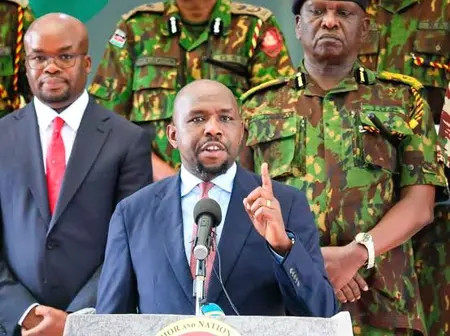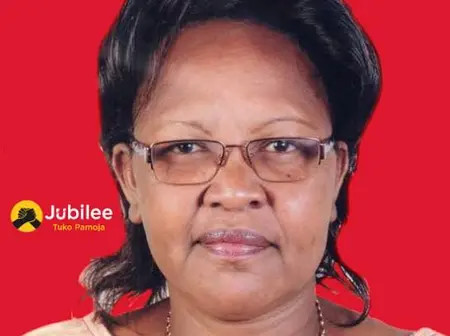
The Interior Cabinet Secretary, Kipchumba Murkomen, has ordered that chiefs stationed in volatile regions of Northern Kenya be fully armed with guns and supplied with ammunition after a string of deadly attacks left local administrators vulnerable and exposed.
The move comes against the backdrop of escalating insecurity, with Al-Shabaab militants and Jubaland fighters increasingly encroaching on Kenyan territory, particularly in Mandera, Wajir, and Garissa counties.
The violence has already claimed lives: two chiefs were murdered in the Rift Valley, while five others were abducted in Mandera, sparking fears that administrators have become easy targets in a conflict that shows no signs of abating.
Murkomen’s directive underscores a radical shift in government policy. Traditionally, chiefs have operated as the face of civil authority, mediators between citizens and the state.
But now, amid rising threats, they are being pushed into the frontline of security enforcement. The government plans not only to arm them but also to subject them to rigorous paramilitary training before handing them firearms.
This decision paints a picture of a government forced to rethink its security strategy. Like shepherds watching over flocks in hostile fields, chiefs have long symbolized leadership and order.
Yet without weapons, they have been like sentinels guarding a fortress with bare hands. The arming of chiefs is, therefore, both a symbolic and practical step — turning local administrators into warriors tasked with protecting their people while upholding the flag of the state.
Critics, however, warn that the policy could blur the line between civilian leadership and militarization, potentially exposing chiefs to even greater danger.
Others argue that empowering chiefs without strengthening border surveillance and intelligence may only scratch the surface of a deeper problem.
Still, for many in Mandera and the larger Northern corridor, Murkomen’s announcement comes as a lifeline. To them, it is a long-overdue acknowledgment that their plight has been heard.




